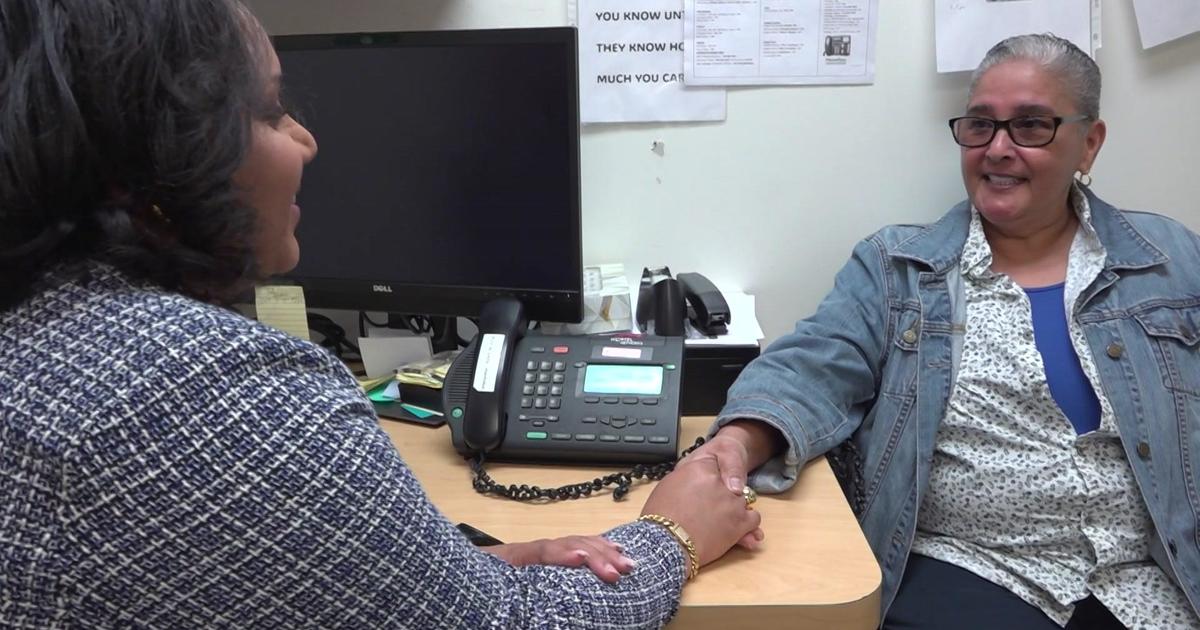Drug Used To Treat Blood, Marrow Disorders Can Also Treat Alopecia, Study Finds
NEW YORK (CBSNewYork) -- An amazing breakthrough was made in the treatment of hairloss on Thursday.
An FDA approved drug has succeeded in growing hair in nearly totally bald volunteers, and as CBS2's Dr. Max Gomez reported, you have to see it to believe it.
Alopecia is a fancy name for a devastating type of hair loss that starts in clumps on the head, and can eventually lead to complete hair loss all over the body -- even the eyebrows and lashes.
Now, researchers have found a drug that regrows hair in alopecia, and may work against male pattern baldness too.
Men often equate a good head of hair with virility, hair has also been called a woman's crowning glory. You can imagine what Sabra Hardy felt like when she started losing her hair.
"I cried every night over it. I didn't feel like a woman," she said.
It's called alopecia areata. The autoimmune disease causes the body to attack hair follicles making it fall out in clumps and patches. The disease affects up to 7-million Americans.
"It's a lot of people, all ages -- childhood, adults, males, females, genders, races equally," Dr. Angela Christiano, Columbia University Medical Center said.
Existing treatments for alopecia have not been very effective, but now, researchers at Columbia University Medical Center and Stanford University have worked out the key factors that lead to hair loss.
It's a type of white blood cell called a T-cell that attacks the hair follicle, but the follicles don't die which means they might be revivable.
Dr. Christiano and colleagues found that a drug called reuxolitinib used for bone marrow and blood disorders actually stops the attack on follicles.
"Unexpectedly, not only do they act on the immune cells, but they also have a beneficial effect on the hair follicle," Dr. Christiano said.
The study on twelve volunteers in the Journal of Clinical Investigation showed stunning results.
Near full hair regrowth was experienced by 75 percent of patients, and by the end of the treatment the average regrowth was 92 percent.
"This shows you can dampen down that immune response and reactivate the hair cycle, years, decades of disease, you can have a clinical response and grow their hair," Dr. Christiano said.
The drug is a once a day pill that can lead to low blood counts, although in the study there were no serious adverse effects.
The drug is not approved for hair loss yet, but it can be used off label for alopecia.
However, it is expensive at up to $10,000 a month.
Researchers have also been testing it on male pattern baldness, on which results suggest it may also work.



